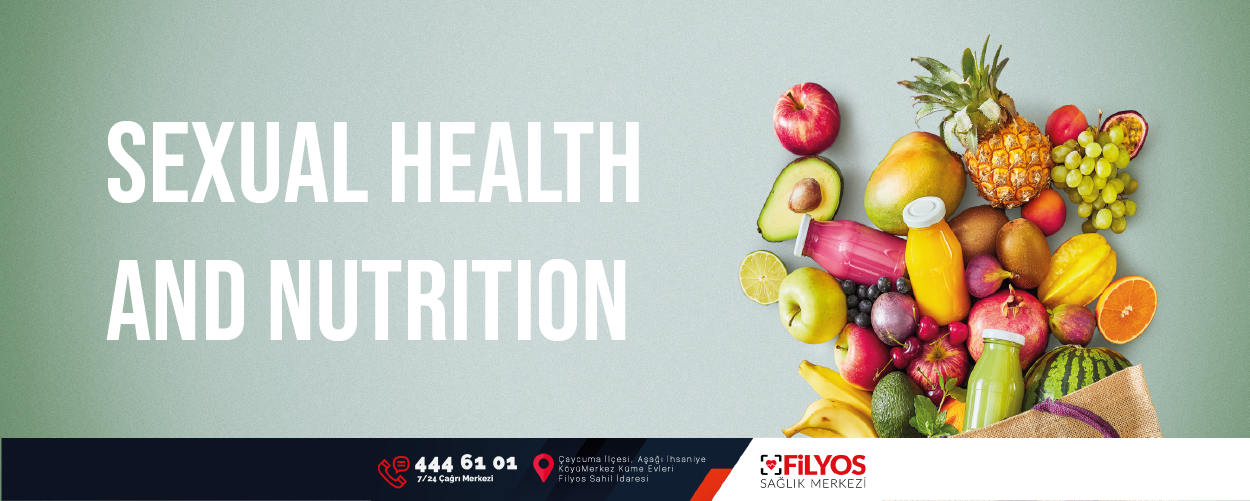
SEXUAL HEALTH AND NUTRITION
The World Health Organization (WHO) defines sexual health as ‘the combination of the physical, emotional, intellectual and social aspects of sexuality that enrich personality, communication and love.
‘ as ‘sexual health’. In a healthy society, it is important for individuals to protect their sexual health and to provide education on this issue.
Nutrition affects sexual health as it affects most things in today’s conditions and is an important parameter for sexual desire, i.e. ‘libido’.
There are many factors that affect sexual health such as exercise, stress, smoking and alcohol use.
Accordingly, reproductive and sexual health problems are among the problems that can be encountered throughout life, starting from youth.
Various treatments are applied against these problems, but nutrition should be evaluated well.
There are nutrients that should be consumed for a healthy sexual life, that is, nutrition programs and recommendations that should be followed specific to the individual, and it is extremely important to follow them.
-Consumption of B1 (thiamine), B2 (riboflavin), vitamin E and antioxidants is important to ensure the flexibility and mobility of the vaginal muscles in women, to increase adrenaline secretion, and to increase sexual activity and sperm motility in men.
-Consumption of sesame seeds, peas, peanuts, peanuts and eggs rich in arginine is important to prevent impotence and infertility.
-To prevent sexual fatigue, it is important to consume fish, red meat, organic cheese and green vegetables with high leucine amino acid content.
-The use of artificial sweeteners affects libido and is very harmful to sexual health.
